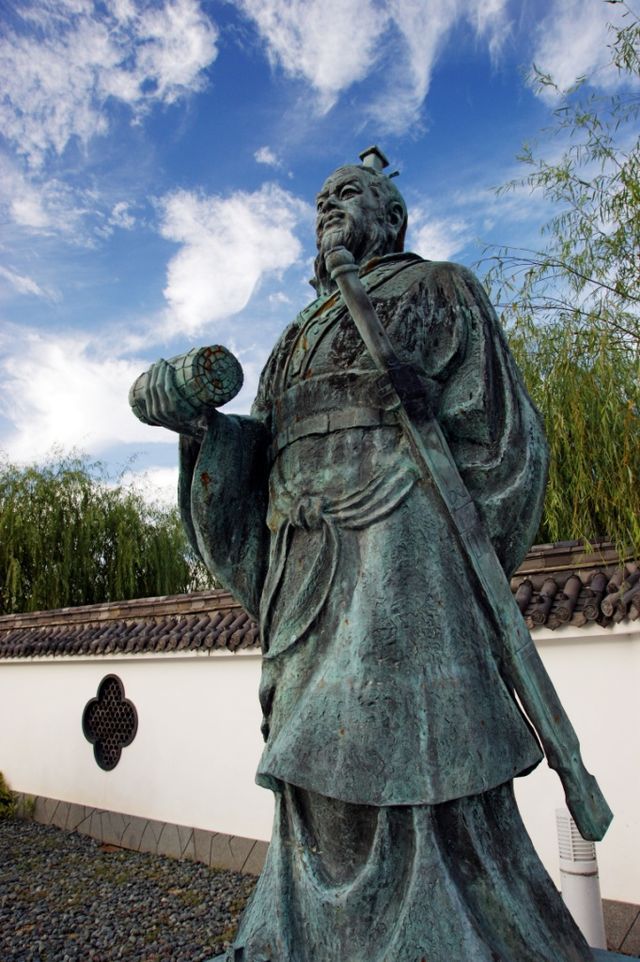
Sun Tzu was a famous Chinese military general, strategist and philosopher who lived in the Spring and Autumn Period (500 BC) of ancient China. A lot of his great quotes can be applied to Axis and Allies—I’ve collected a few here:
Quotes from Sun Tzu’s Art of War:
· All warfare is based on deception. Hence, when able to attack, we must seem unable; when using our forces, we must seem inactive; when we are near, we must make the enemy believe we are far away; when far away, we must make him believe we are near.
· According as circumstances are favorable, one should modify one’s plans.
· Hold out baits to entice the enemy. Feign disorder, and crush him.
· If he is secure at all points, be prepared for him. If he is in superior strength, evade him. If your opponent is of choleric temper, seek to irritate him. Pretend to be weak, that he may grow arrogant. If he is taking his ease, give him no rest. If his forces are united, separate them. Attack him where he is unprepared, appear where you are not expected.
· Now the general who wins a battle makes many calculations in his temple ere the battle is fought. The general who loses a battle makes but few calculations beforehand. Thus do many calculations lead to victory, and few calculations to defeat: how much more no calculation at all! It is by attention to this point that I can foresee who is likely to win or lose.
· It is the rule in war, if our forces are ten to the enemy’s one, to surround him; if five to one, to attack him; if twice as numerous, to divide our army into two. If equally matched, we can offer battle; if slightly inferior in numbers, we can avoid the enemy; if quite unequal in every way, we can flee from him.
· He will win who knows when to fight and when not to fight.
· He will win who knows how to handle both superior and inferior forces.
· He will win who, prepared himself, waits to take the enemy unprepared.
· If you know the enemy and know yourself, you need not fear the result of a hundred battles. If you know yourself but not the enemy, for every victory gained you will also suffer a defeat. If you know neither the enemy nor yourself, you will succumb in every battle.
· Sun Tzu said: The good fighters of old first put themselves beyond the possibility of defeat, and then waited for an opportunity of defeating the enemy.
· To secure ourselves against defeat lies in our own hands, but the opportunity of defeating the enemy is provided by the enemy himself.
· What the ancients called a clever fighter is one who not only wins, but excels in winning with ease.
· Rapidity is the essence of war: take advantage of the enemy’s unreadiness, make your way by unexpected routes, and attack unguarded spots.
· By altering his arrangements and changing his plans, he keeps the enemy without definite knowledge. By shifting his camp and taking circuitous routes, he prevents the enemy from anticipating his purpose.
· If the enemy leaves a door open, you must rush in.
· Move not unless you see an advantage; use not your troops unless there is something to be gained; fight not unless the position is critical.
· If it is to your advantage, make a forward move; if not, stay where you are.
· The skillful fighter puts himself into a position which makes defeat impossible, and does not miss the moment for defeating the enemy.
· In war the victorious strategist only seeks battle after the victory has been won, whereas he who is destined to defeat first fights and afterwards looks for victory.
· The clever combatant imposes his will on the enemy, but does not allow the enemy’s will to be imposed on him.
· You can be sure of succeeding in your attacks if you only attack places which are undefended. You can ensure the safety of your defense if you only hold positions that cannot be attacked.
· That general is skillful in attack whose opponent does not know what to defend; and he is skillful in defense whose opponent does not know what to attack.
· The spot where we intend to fight must not be made known; for then the enemy will have to prepare against a possible attack at several different points; and his forces being thus distributed in many directions, the numbers we shall have to face at any given point will be proportionately few.
· For should the enemy strengthen his (front), he will weaken his rear; should he strengthen his rear, he will weaken his (front); should he strengthen his left, he will weaken his right; should he strengthen his right, he will weaken his left. If he sends reinforcements everywhere, he will everywhere be weak.
· Carefully compare the opposing army with your own, so that you may know where strength is superabundant and where it is deficient.
· Do not repeat the tactics which have gained you one victory, but let your methods be regulated by the infinite variety of circumstances.
· In war, the way is to avoid what is strong and to strike at what is weak.
· He who exercises no forethought but makes light of his opponents is sure to be captured by them.








